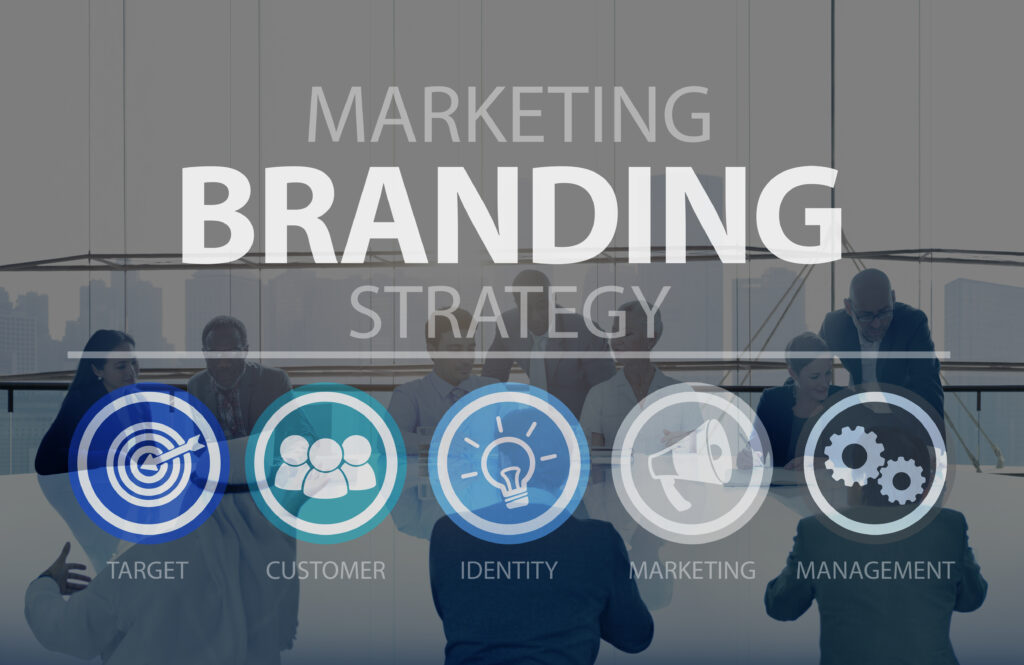
Empowering Businesses with Digital Marketing: Strategies for Growth, Engagement, and Global Reach
In today’s fast-paced, technology-driven world, businesses are constantly searching for ways to differentiate themselves and attract a larger audience. Digital marketing has emerged as one of the most effective tools for achieving these goals. It encompasses various strategies that leverage the internet and electronic devices to connect with potential customers, foster engagement, and Read more. Whether you’re a startup or a multinational corporation, digital marketing plays a critical role in your success. This article will explore the uses of digital marketing in business, focusing on key areas like brand awareness, customer engagement, data analytics, and global reach.
Understanding Digital Marketing What It Is and Why It Matters for Businesses

At its core, digital marketing involves using online platforms and digital technologies to promote products, services, and brands. It encompasses a wide range of tactics, including social media marketing, email marketing, content marketing, SEO, and PPC advertising. Digital marketing is essential for businesses because it allows them to reach a larger audience, engage with customers in real-time, and measure the success of their campaigns with precision.
Enhancing Brand Visibility and Awareness through Digital Marketing Strategies

Brand visibility and awareness are crucial for businesses looking to establish themselves in a crowded market. Digital marketing offers a wide range of strategies that can enhance brand visibility, from search engine marketing (SEM) and content marketing to influencer partnerships and video marketing.
Content marketing, for example, involves creating and distributing valuable, relevant content that educates and engages your target audience. Which include blog posts, videos, podcasts, and infographics and soon. By providing value to your audience, you establish your brand as a thought leader in your industry, which in turn enhances your visibility and credibility.
Enhancing Customer Engagement with Personalized Content

Personalization is a critical component of modern marketing. Today’s consumers expect brands to deliver content that is tailored to their preferences, needs, and behaviours. By leveraging digital marketing tools like email marketing, social media, and customer relationship management (CRM) platforms, businesses can create personalized experiences that resonate with their audience.
For example, email marketing allows businesses to send targeted messages based on customer behaviour, such as previous purchases or website visits. This level of personalization helps businesses build deeper connections with their audience, leading to higher engagement rates and customer satisfaction. Social media platforms, like Instagram and Facebook, also enable brands to interact with their audience in real-time, creating a sense of community and loyalty.
Driving Sales and Conversions with Effective SEO Strategies
Search engine optimization (SEO) is a powerful tool for driving organic traffic to a website. By optimizing your site for search engines like Google, you increase the likelihood of appearing at the top of search results when potential customers are searching for products or services related to your business.
Effective SEO strategies include keyword research, on-page optimization, and link-building efforts. By creating high-quality, relevant content that aligns with user intent, businesses can drive more traffic to their site, ultimately leading to higher sales and conversions. SEO is a long-term strategy that, when executed correctly, can yield substantial returns on investment.
Cost-Effective Advertising: How Digital Marketing Saves Money for Businesses
One of the best key advantages of digital marketing is its cost-effectiveness. Traditional marketing methods, such as television and print advertising, can be expensive and often have a limited reach. In contrast, digital marketing allows businesses to reach a larger audience at a fraction of the cost.
Pay-per-click (PPC) advertising, one of the examples, which allows businesses to set their own budgets and only when a user clicks on their ads the amount will deduct. This ensures that marketing dollars are spent efficiently, as businesses are only charged for actual engagement. Additionally, organic strategies like SEO and content marketing provide long-term value without requiring a large upfront investment.
Utilizing Data Analytics for Informed Decision Making
One of the greatest advantages of digital marketing is the ability to track and measure every aspect of a campaign. Data analytics tools, like Google Analytics and HubSpot, provide businesses with insights into customer behaviour, website traffic, and campaign performance. These insights enable companies to make informed decisions about their marketing strategies, ensuring they are targeting the right audience and maximizing their return on investment.
By analysing data, businesses can identify trends, optimize their campaigns, and improve their overall marketing efforts. For example, if data shows that a particular social media platform is driving the majority of traffic to a website, businesses can allocate more resources to that platform to boost their results. Data-driven marketing is essential for staying competitive in today’s digital landscape.
Expanding Reach Globally with E-commerce Solutions
E-commerce has revolutionized the way businesses operate. With digital marketing, companies can reach a global audience and sell their products or services to customers around the world. E-commerce platforms like Shopify, WooCommerce, and BigCommerce allow businesses to create an online store and integrate it with their digital marketing efforts. Through targeted advertising, social media marketing, and SEO, businesses can attract customers from different regions, expand their reach, and increase their revenue. E-commerce solutions also provide businesses with valuable data about their customers, such as purchasing behavior and preferences, which can be used to optimize their marketing efforts and drive more sales.
Building Customer Relationships and Engagement with Effective Digital Marketing
Cultivating strong customer relationships is essential for achieving long-term success. Digital marketing allows businesses to engage with their audience in meaningful ways, fostering trust and loyalty. Email marketing, social media interactions, and content marketing are all effective tools for building and nurturing customer relationships. Regular communication with your customers through personalized emails, social media updates, and blog content keeps your audience engaged and informed about your brand. This ongoing interaction helps businesses build a loyal customer base, which is essential for driving repeat business and referrals.
The Role of Data Analytics in Driving Effective Digital Marketing Decisions
Data analytics is at the heart of every successful digital marketing strategy. By collecting and analyzing data, businesses can gain valuable insights into their customers’ preferences, behaviours, and needs. This information allows marketers to make more informed decisions about their campaigns, ensuring they are targeting the right audience with the right message.
For example, data analytics can help businesses identify which marketing channels are driving the most traffic and conversions. Armed with this information, they can adjust their strategies to focus on the most effective channels, optimizing their marketing efforts and maximizing their return on investment.
The Future of Business Trends Shaping Digital Marketing Strategies Today and Tomorrow
As technology continues to advance, the field of digital marketing evolves alongside it. Emerging trends such as artificial intelligence (AI), machine learning, and automation are shaping the future of digital marketing strategies. AI-powered tools like chatbots and personalized recommendation engines are already being used to enhance customer experiences and drive engagement.
In the future, we can expect to see even more advanced technologies, such as virtual reality (VR) and augmented reality (AR), being integrated into digital marketing campaigns. These technologies will provide businesses with new ways to engage their audience and create immersive brand experiences.
Traffic and Leads How Digital Marketing Fuels Customer Acquisition
Generating traffic and leads is a primary goal of digital marketing. Whether through SEO, PPC, or social media marketing, businesses use digital marketing to attract potential customers to their website or online store. Once on the site, businesses can use targeted content, email campaigns, and lead magnets to convert visitors into customers.
Lead generation is particularly important for B2B businesses, as it allows them to nurture prospects through the sales funnel and turn them into paying customers.
The Role of Social Media in Amplifying Business Reach and Engagement
Social media has become an indispensable tool for businesses looking to increase their reach and engagement. Platforms like Facebook, Instagram, LinkedIn, and Twitter allow businesses to connect with their audience on a personal level, share valuable content, and foster community. Social media marketing also enables businesses to run paid advertising campaigns that target specific demographics, interests and and behaviors, ensuring that their message reaches the right audience. With billions of active users on social media, businesses can significantly expand their reach and visibility.
Email Marketing: An Essential Tool for Building Customer Relationships and Loyalty
Email marketing remains one of the most effective digital marketing tools for building customer relationships and loyalty. By sending personalized and relevant content to subscribers, businesses can nurture leads, increase engagement, and drive repeat purchases. Email marketing also provides businesses with valuable data, such as open and click-through rates, which can be used to optimize future campaigns.
Utilizing Data Analytics to Measure Success and Optimize Digital Marketing Efforts
Data analytics plays a crucial role in evaluating the effectiveness of digital marketing campaigns and guiding data-driven decision-making. By tracking key performance indicators (KPIs), such as website traffic, conversion rates, and customer engagement, businesses can determine which strategies are working and which need to be adjusted.
Tools like Google Analytics and social media insights provide businesses with real-time data, allowing them to optimize their campaigns for better results.
Conclusion
Digital marketing has transformed the way businesses connect with their audience, providing unparalleled opportunities to build brand awareness, engage customers, and drive sales. Unlike traditional methods, digital marketing offers precise targeting, cost-effective solutions, and real-time insights that allow businesses to adapt quickly in an ever-evolving marketplace. By embracing strategies such as SEO, personalized content, data analytics, and global e-commerce solutions, companies can extend their reach, foster long-term customer relationships, and remain competitive in a digital-first world.
As businesses continue to navigate a future shaped by technological advancements, those that invest in innovative digital marketing strategies will not only survive but thrive. The key lies in understanding the power of data, delivering value through personalized experiences, and continuously optimizing efforts to meet the changing needs of customers. Whether it’s through social media, email marketing, or cutting-edge tools like AI, the businesses that effectively harness digital marketing will lead the way, setting new benchmarks for growth and customer engagement in the years to come.
